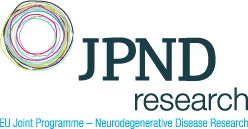
Huntington’s disease (HD) is an inherited neurodegenerative disorder where a person who has the causative gene experiences gradually worsening problems with movement, thinking and behavior, with symptoms first showing usually in mid-life. This is caused by the production of a mutant protein which leads to the loss of specific cells in the brain. Although we know which gene causes HD and understand a lot about why it happens, there is still no treatment available that can slow down the course of the disease or cure it altogether.
HD affects about 1 person in 10,000 in the UK, which classifies it as a rare disease. This makes conducting research into new treatments that much more challenging because we still need large numbers of people to become involved in research to demonstrate that new treatments are effective. Having said that, the global HD community is incredibly research active, with people living with HD volunteering their time and their bodies to furthering HD research in the hope of one day finding something that may help slow or stop this devastating disease.

For instance, many people with HD are taking part in the Enroll-HD study. This is a large global study where participants undergo an annual assessment of their symptoms. HD researchers can then apply to use that data in an effort to understand how HD develops and affects people over the longer term, which is incredibly important for a rare disease like HD. Another huge benefit of Enroll-HD is that it also acts as a registry of research-interested people and can be used to aid recruitment to clinical studies. Recruitment is a real problem for all clinical research but is especially difficult for rare diseases.
Whilst Enroll-HD provides a really valuable platform for conducting research studies in HD, we still face the problem of small numbers of people being asked to undergo many study visits and testing to collect the information needed. We need to find ways of reducing the burden on those who volunteer to take part so that the community is not overwhelmed with research.
We need to find ways of reducing the burden on those who volunteer to take part so that the community is not overwhelmed with research.
Clinical research in HD has seemingly entered a new era, with emerging potential new therapies moving away from the more traditional ‘pill-once-a-day’ approach to treatments that need to be delivered directly to the central nervous system. Currently, there are a number of studies investigating the potential of a number of treatments like this in clinical trials, but the availability of disease-modifying treatments in the clinic is still some way off from becoming a reality.
Whilst work continues to identify and test new drug treatments for HD, it is important to continue investigating other ways that the disease course may be altered and for ways to improve the quality of life of people living with HD. Previous research has shown that point at which symptoms start to become apparent and how quickly the symptoms worsen can be influenced by things other than the disease-causing mutation alone. These factors include other genes (known as genetic modifiers), physical activity and a person’s environment.
Our group have conducted a number of studies looking at how physical activity interventions may benefit people with HD. Given the potential of other lifestyle factors to influence the progression of HD, we wanted to extend this work to see if a holistic lifestyle intervention might provide benefit and improve the quality of life of people with HD. However, there are lots of things we do not know about the general lifestyle of people with HD which we need to understand first, and this is the subject of the DOMINO-HD study (Multi-Domain Lifestyle Targets for Improving ProgNOsis in Huntington’s Disease).
DOMINO-HD
DOMINO-HD is a project funded by the Joint Program for Neurodegenerative Disease and is a consortium effort, led by Monica Busse in Cardiff, with contributions from partners in Ireland, Spain, Germany, Switzerland, Poland, RAND corporation and the European Huntington’s Association. Within this project we want to measure how a person’s lifestyle and pre-determined genetic profile can combine to affect the way in which HD progresses. At the same time as doing this, we are investigating ways of measuring these aspects of lifestyle using commercially available digital devices in an effort to maximize data collection whilst simultaneously reducing the burden on our participants.

To look at how lifestyle and genetic factors affect how quickly HD might progress we are asking people to take part in a 12-month observational study. At the beginning of the study, participants from the UK, Spain, Germany, Switzerland and Poland will be asked to complete some questionnaires on physical activity, diet, sleep and quality of life. We will link these visits to recent Enroll-HD study visits so that we can use the clinical data collected as part of Enroll and reduce the amount participants have to do at each study visit. The participants will then be given a Fitbit to wear for the remainder of the study so that we can measure physical activity and sleep over the 12 months. We will then combine the data with clinical measures obtained from Enroll-HD at 12 months to investigate how lifestyle factors may influence the progression of HD.

It is really important to highlight that commercially available devices like Fitbit have been developed for use by ‘average’ people. We do not know if the devices will record sleep and physical activity in people with a movement disorder with the same degree of reliability as those it was designed for. Therefore, we are also running a number of sub-studies across all the consortium partners to investigate this further. The sub-studies include a closer examination of using Fitbit to record sleep, physical activity and energy expenditure (i.e. calorie burn) as well as a deeper exploration into the role of nutrition and diet.
Once all the data has been collected and analyzed, we want to use it to develop a lifestyle intervention, which would include advice and guidance on physical activity, sleep and nutrition which we could then test to see if it helps improve quality of life in HD. We also hope to understand more about how digital technologies can be employed in longer-term research to reduce the burden on those volunteering to take part. This can then be applied to long-term research in other conditions and rare diseases to maximize research efficiency and potential.
Comments